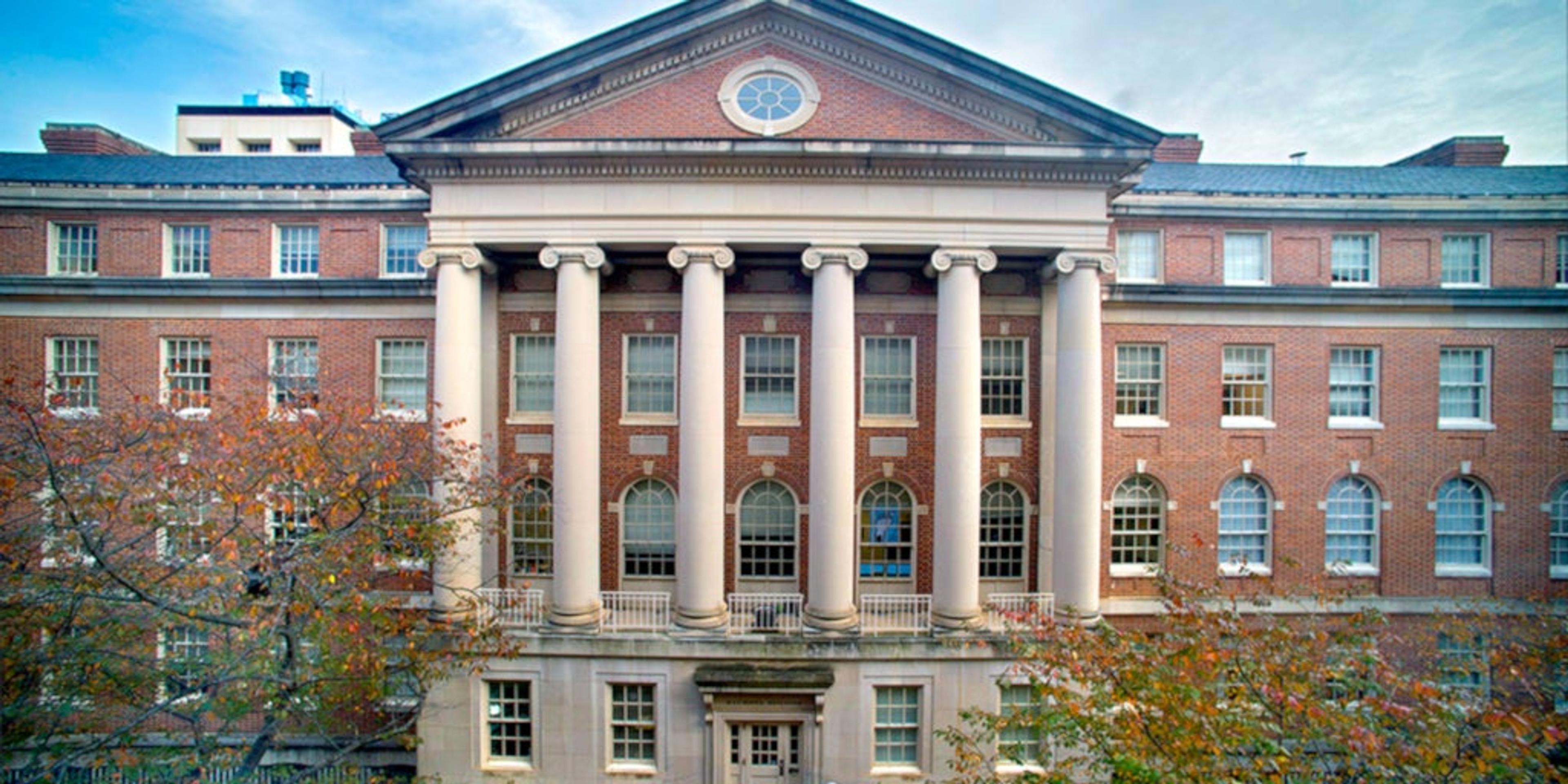Yale School of Medicine Financial Aid & Scholarships: How to Pay for School
Discover the ins and outs of financing your education at Yale School of Medicine with this comprehensive guide to financial aid and scholarships.
Posted April 10, 2025

Table of Contents
Free Event

Featuring Jaspreet K.
Ask Me Anything: Medical School Applications
Starting Friday, April 25
12:00 AM UTC · 30 minutes

Featuring Jaspreet K.
Yale School of Medicine is one of the most prestigious medical schools in the United States. However, the cost of education can be a significant barrier for many students. Fortunately, Yale School of Medicine offers a range of financial aid and scholarships to help students navigate the financial burden and make their dreams of becoming healthcare professionals a reality.
Financial Aid and Scholarships at Yale Medical School
At Yale School of Medicine, the Office of Financial Aid is committed to supporting students in their pursuit of a medical education. They offer a variety of financial aid options, including scholarships, grants, loans, and work-study programs. These resources are aimed at making education more affordable and reducing the financial stress on students.
One of the main financial aid options available at Yale Medical School is scholarships. The school offers a range of scholarships to help students cover the cost of tuition and other expenses. These scholarships are awarded based on various criteria, including academic merit, financial need, and specific areas of interest or specialization. Students are encouraged to apply for scholarships early in the application process to increase their chances of receiving funding.
Yale Medical School also provides grants to eligible students. Grants are typically awarded based on financial need and do not need to be repaid. They can be used to cover a variety of educational expenses, such as tuition, books, and living expenses. The Office of Financial Aid works closely with students to determine their eligibility for grants and to ensure that they receive the necessary financial support.
For students who require additional financial assistance, Yale Medical School offers loans as part of their financial aid package. These loans can help cover the remaining costs of education that are not covered by scholarships or grants. The Office of Financial Aid provides guidance and counseling to students to help them understand the terms and conditions of the loans and to develop a repayment plan that suits their individual circumstances.
Additionally, Yale Medical School recognizes the importance of allowing students to gain valuable work experience while pursuing their education. To support this, they offer work-study programs that provide students with the opportunity to work part-time on campus or in affiliated healthcare institutions. These work-study positions not only help students earn income to offset their educational expenses but also allow them to gain practical skills and knowledge in their field of study.
Overall, the Office of Financial Aid at Yale Medical School is dedicated to ensuring that students have access to the financial resources they need to succeed in their medical education. Through scholarships, grants, loans, and work-study programs, they strive to make education more affordable and reduce the financial burden on students. By providing a range of financial aid options, Yale Medical School aims to support students in their academic journey and help them achieve their career goals in the medical field.
Related topic: PA School Scholarships: Your Guide to Financing Your Physician Assistant Education
How to Navigate the Financial Assistance
Understanding the different types of financial assistance available is crucial in making informed decisions about paying for medical school. The Office of Financial Aid provides resources and guidance to help students navigate the complex process. They offer individual counseling sessions to review financial aid packages, clarify eligibility criteria, and answer any questions students may have.
When it comes to financing medical school, there are several options to consider. One of the most common forms of financial assistance is scholarships. Scholarships are awarded based on various criteria, such as academic achievement, community involvement, or specific demographic factors. These scholarships can significantly reduce the financial burden of medical school and are worth exploring.
Grants are another form of financial assistance that can help students cover the cost of medical school. Grants are typically need-based and do not need to be repaid. They are awarded by the government, institutions, or private organizations and can provide significant financial support to students who qualify.
Another option to consider is student loans. While loans do need to be repaid, they can be a valuable tool in financing medical school. There are various types of student loans available, including federal loans and private loans. It's important to carefully review the terms and conditions of each loan option and consider the long-term implications of borrowing before making a decision.
Some medical schools offer work-study programs, which allow students to work part-time while attending school. These programs provide students with valuable work experience and help offset the cost of tuition. Work-study opportunities can be found both on and off-campus, and students are typically paid an hourly wage for their work.
It's important for students to thoroughly research and understand the financial assistance options available to them. The Office of Financial Aid can provide valuable resources and guidance throughout this process. They can help students determine their eligibility for various forms of financial assistance and assist in completing the necessary applications and paperwork.
Additionally, the Office of Financial Aid can provide information on budgeting and financial planning. They can help students create a realistic budget that takes into account tuition, living expenses, and other costs associated with attending medical school. By carefully managing their finances, students can make the most of the financial assistance available to them and minimize the need for additional borrowing.
Read: Yale Medical School Tuition & Fees Breakdown
How to Apply for Aid
The process of applying for financial aid at Yale School of Medicine starts with completing the Free Application for Federal Student Aid (FAFSA). The FAFSA determines a student's eligibility for federal financial aid programs. It is recommended to submit the FAFSA as early as possible to ensure consideration for all available aid.
Additionally, Yale School of Medicine has its own financial aid application called the CSS Profile. This application collects additional information that helps determine eligibility for school-specific aid programs. It is important to complete both the FAFSA and CSS Profile to maximize the chances of receiving financial assistance.
Budget and Financial Plan Process for Yale
While financial aid and scholarships can help alleviate the burden of medical school expenses, it is essential for students to develop effective budgeting and financial planning strategies. The Office of Financial Aid provides workshops and resources to assist students in managing their finances throughout their medical education.
Creating a budget will allow students to track their expenses and ensure they are living within their means. It is important to prioritize essential expenses such as tuition, housing, and books while also considering additional costs such as food, transportation, and healthcare.
Yale School of Medicine also encourages students to explore external funding opportunities, such as grants and scholarships offered by organizations and foundations outside of the school. These additional resources can further reduce the financial burden and contribute to a student's overall financial well-being.
Final Thoughts
Yale School of Medicine is committed to providing financial aid and scholarships to support students in their journey towards becoming healthcare professionals. By understanding the different types of aid available, navigating the application process, and implementing effective budgeting strategies, students can pave the way for a successful and financially manageable medical education at Yale. The Office of Financial Aid is always available to provide guidance and support, ensuring that no deserving student is denied the opportunity to attend Yale School of Medicine due to financial constraints.
Read these next:











